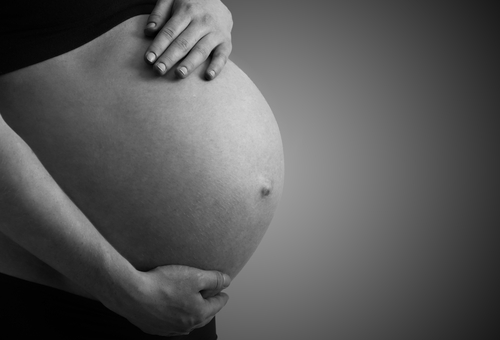Mom's Plant-Based Diet May Protect Baby from Penis Defect

Get the world’s most fascinating discoveries delivered straight to your inbox.
You are now subscribed
Your newsletter sign-up was successful
Want to add more newsletters?

Delivered Daily
Daily Newsletter
Sign up for the latest discoveries, groundbreaking research and fascinating breakthroughs that impact you and the wider world direct to your inbox.

Once a week
Life's Little Mysteries
Feed your curiosity with an exclusive mystery every week, solved with science and delivered direct to your inbox before it's seen anywhere else.

Once a week
How It Works
Sign up to our free science & technology newsletter for your weekly fix of fascinating articles, quick quizzes, amazing images, and more

Delivered daily
Space.com Newsletter
Breaking space news, the latest updates on rocket launches, skywatching events and more!

Once a month
Watch This Space
Sign up to our monthly entertainment newsletter to keep up with all our coverage of the latest sci-fi and space movies, tv shows, games and books.

Once a week
Night Sky This Week
Discover this week's must-see night sky events, moon phases, and stunning astrophotos. Sign up for our skywatching newsletter and explore the universe with us!
Join the club
Get full access to premium articles, exclusive features and a growing list of member rewards.
Babies born to women with a diet high in certain plant compounds may have lower risks of a birth defect of the penis, according to a new study.
The study researchers found that higher intakes of plant estrogens primarily found in flax seeds, soy products, whole grain cereals and some vegetables were associated with reduced risks of delivering infants with hypospadias, a condition in which the urethral opening is on the underside of the penis.
Scientists have suspected that a mother's diet high in estrogens derived from plants, for example, in vegetarian women, may be related to the condition, by having an impact on the developing fetus' hormones. However, it wasn't clear whether this impact would be negative or positive.
Because the developmental defect occurs in the early weeks of pregnancy, the researchers examined the relationship between the foods moms ate before they got pregnant and the rate of babies born with the defect.
In the study, mothers of 1,250 hypospadias cases and 3,118 "healthy" infants (the control group) reported their average intake of different food items in the year before they became pregnant. Researchers then estimated how much plant estrogens, called phytoestrogens, each woman consumed.
The results showed that women who consumed the most plant estrogens — in the top 10 percent of the participants' intake amounts — were less likely than other participants to have babies with hypospadias.
The mechanism by which plant estrogens may protect against hypospadias is not clear. Similarly, the effects of these compounds on the body in general are complex and not fully known.
Get the world’s most fascinating discoveries delivered straight to your inbox.
"It's hard to predict what particular effect phytoestrogens [have] in a particular individual," said study researcher Dr. Suzan Carmichael, a professor of pediatrics at Stanford University School of Medicine.
The observed protective associations merit investigation in additional studies before firm conclusions can be reached, the researchers said.
Hypospadias affects from 4 to 6 newborn boys out of 1,000. Often, the defect can be corrected surgically by using tissue grafts from the foreskin. But complications are not uncommon.
"Some infants might need multiple surgeries," Carmichael said. "When they reach puberty, complications may occur that stem from the condition or the corrective surgery."
Among the study participants, mothers of babies with hypospadias were more likely to be non-Hispanic white, older and take folic acid supplements, compared with the control mothers, a finding that is consistent with the previous studies.
The study was published June 9 in the American Journal of Epidemiology.
Email Bahar Gholipour. Follow LiveScience @livescience, Facebook & Google+. Original article on Live Science.

 Live Science Plus
Live Science Plus










